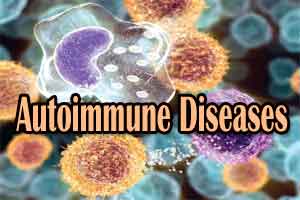- Home
- Editorial
- News
- Practice Guidelines
- Anesthesiology Guidelines
- Cancer Guidelines
- Cardiac Sciences Guidelines
- Critical Care Guidelines
- Dentistry Guidelines
- Dermatology Guidelines
- Diabetes and Endo Guidelines
- Diagnostics Guidelines
- ENT Guidelines
- Featured Practice Guidelines
- Gastroenterology Guidelines
- Geriatrics Guidelines
- Medicine Guidelines
- Nephrology Guidelines
- Neurosciences Guidelines
- Obs and Gynae Guidelines
- Ophthalmology Guidelines
- Orthopaedics Guidelines
- Paediatrics Guidelines
- Psychiatry Guidelines
- Pulmonology Guidelines
- Radiology Guidelines
- Surgery Guidelines
- Urology Guidelines
Scleroderma study: Hope for a longer life for patients with rare autoimmune disorder

An unusual autoimmune disease that causes skin and lung damage can be treated effectively by stem cell transplant, a new study in the New England Journal of Medicine has found. The approach could represent the first new treatment to improve survival in patients with severe scleroderma in more than four decades.
The experimental procedure uses chemotherapy and radiation to destroy the body's malfunctioning immune system, then replaces it via a stem-cell transplant. The stem cells are taken from the patient's own blood and given back to the patient after the chemotherapy.
In a multisite clinical trial, the approach proved more successful than the existing treatment, significantly improving survival and reported quality of life. "This is a major advance in the treatment of severe scleroderma," said Karen Ballen, MD, a co-investigator on the study and the director of stem cell transplantation at the University of Virginia Cancer Center.
Scleroderma Study
The study compared the most effective existing treatment, the drug cyclophosphamide, with the new approach. Thirty-four trial participants received cyclophosphamide, while 33 received the stem cell transplant treatment. After 72 months, 86 percent of those who received the stem-cell transplant remained alive, compared with only 51 percent of those who received infusions of cyclophosphamide.
In the New England Journal of Medicine paper detailing their findings, the researchers conclude: "At four and a half years of follow up, participants who received a transplant experienced significantly better outcomes overall than those who received cyclophosphamide. In addition, 44 percent of participants who received cyclophosphamide had begun taking anti-rheumatic drugs for progression of their scleroderma, compared to only 9 percent of those who received a transplant."
Both treatment options carried risks of infections and low blood-cell counts, the researchers reported. The overall infection rates were similar.
All participants had severe scleroderma that affected their lungs or kidneys. The researchers noted that their study had limitations that suggest the findings may not apply to all patients with scleroderma.

Disclaimer: This site is primarily intended for healthcare professionals. Any content/information on this website does not replace the advice of medical and/or health professionals and should not be construed as medical/diagnostic advice/endorsement or prescription. Use of this site is subject to our terms of use, privacy policy, advertisement policy. © 2020 Minerva Medical Treatment Pvt Ltd